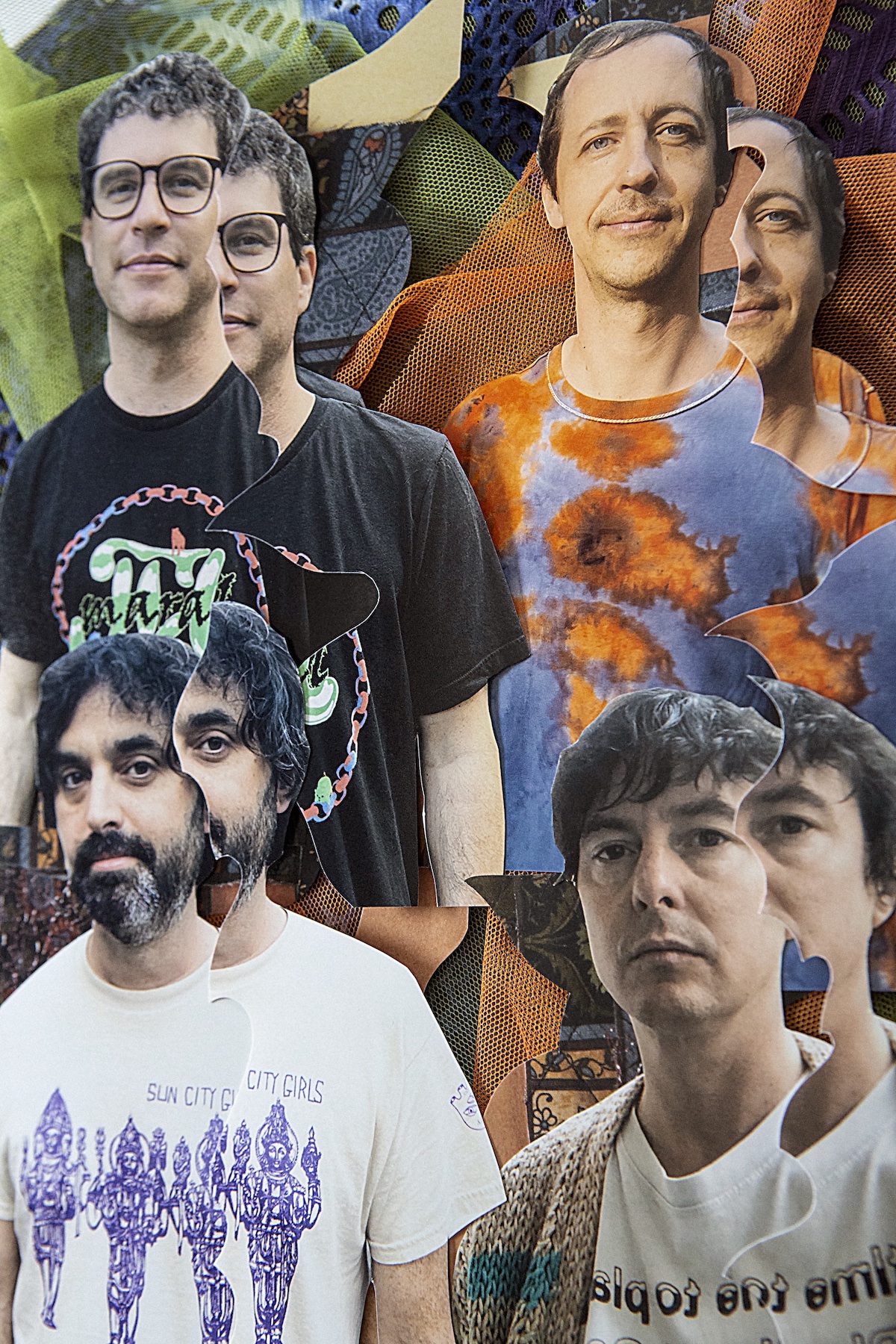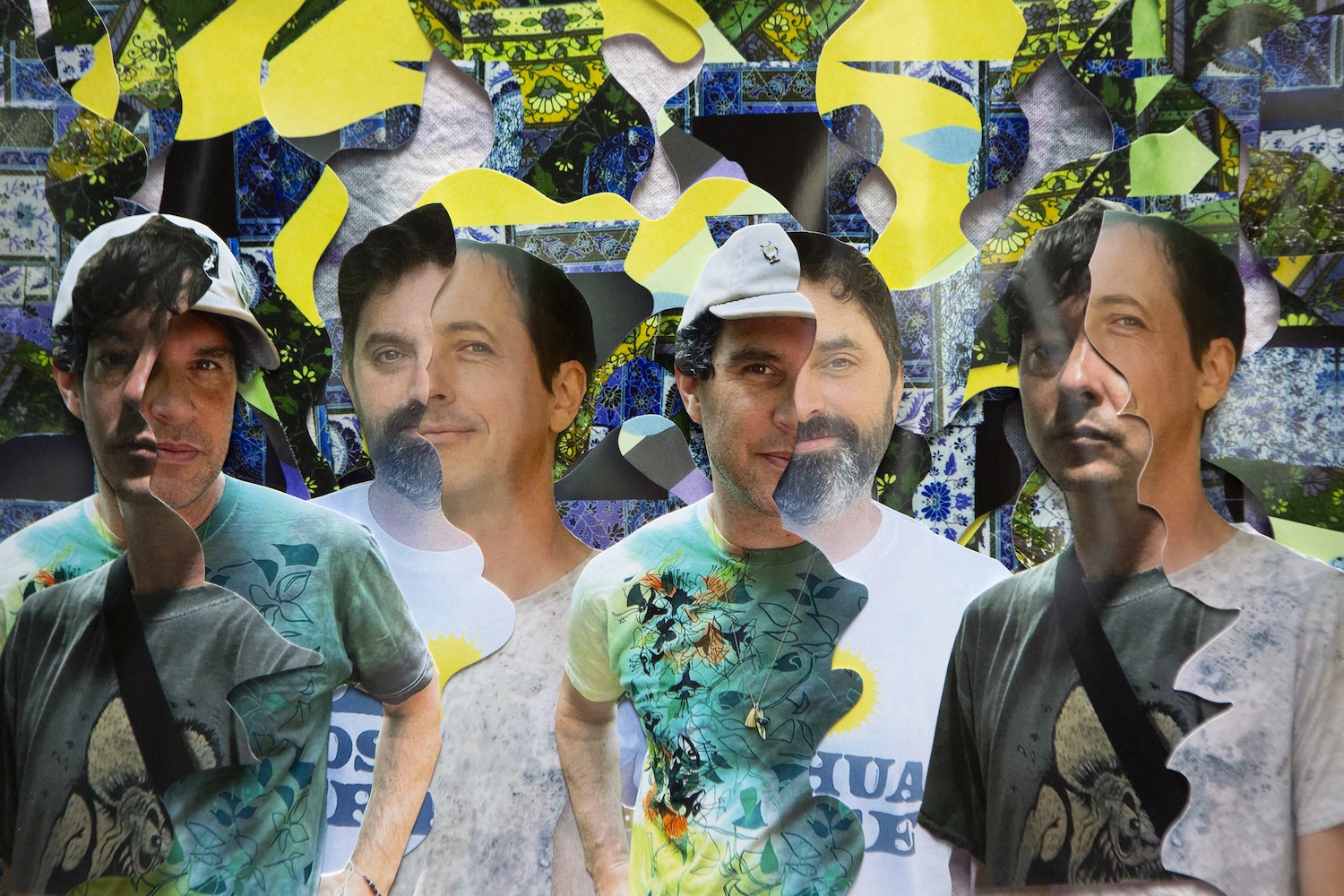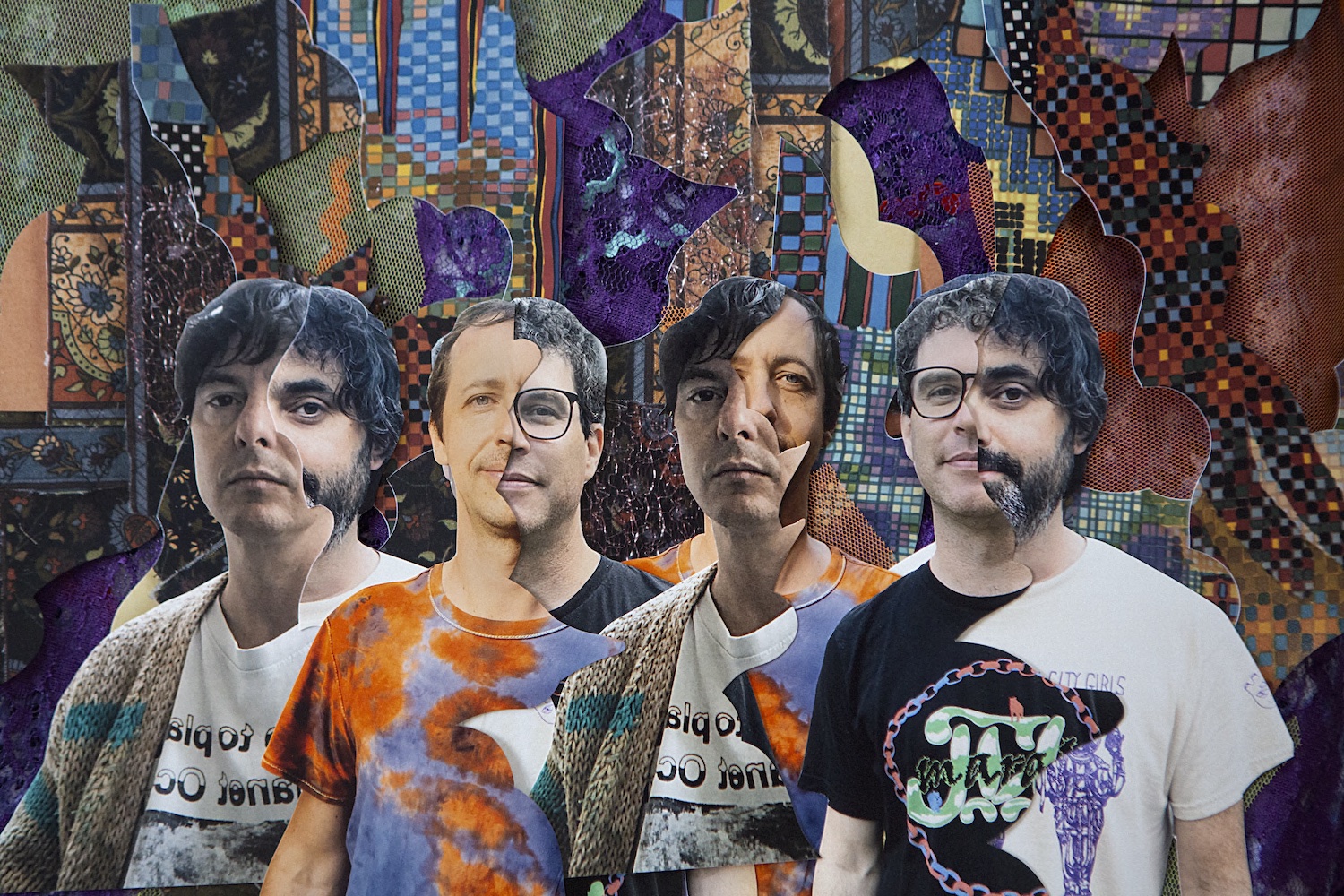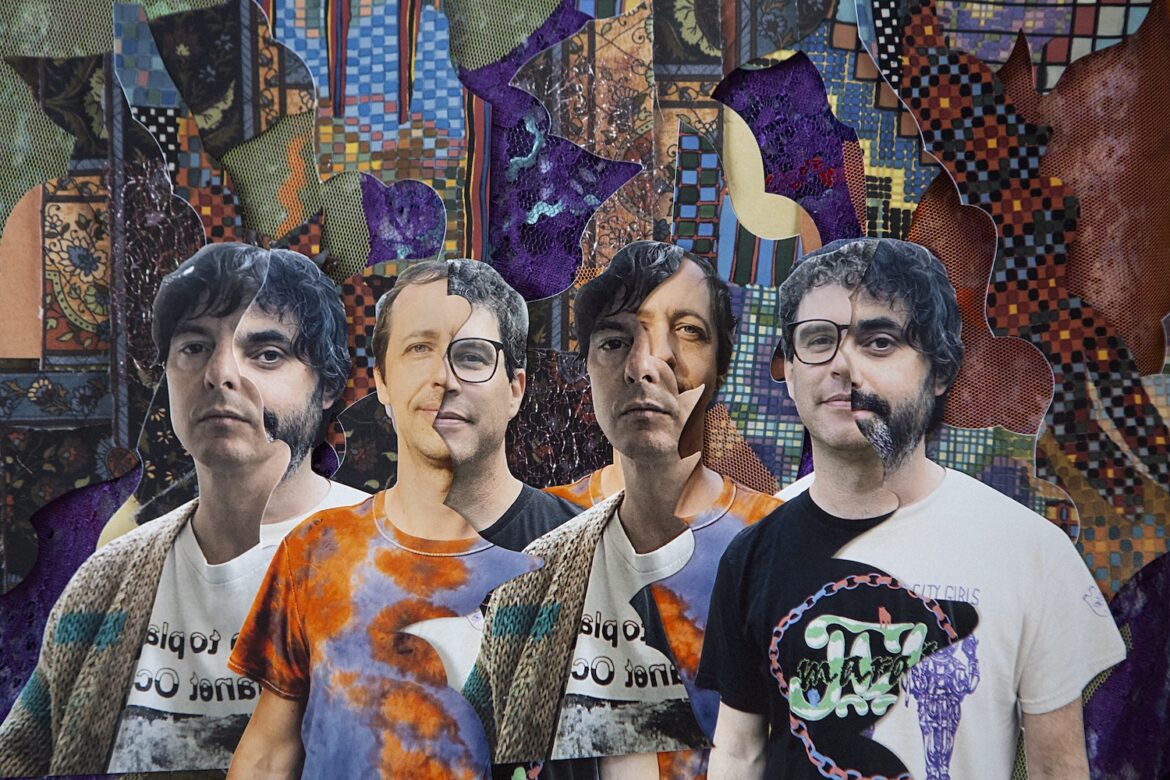Animal Collective contend with the difficulty of change, in traditionally difficult fashion, on “Defeat,” taken off their 2023 album, ‘Isn’t it Now?’
 follow our Today’s Song(s) playlist
follow our Today’s Song(s) playlist 
Stream: “Defeat” – Animal Collective
Animal Collective have often been a mystifying band, their brand of psychedelic pop often dazzling enough to obscure implicit meaning.
For instance, when Avey Tare (Dave Portner) and Panda Bear (Noah Lennox) first collaborated on the debut Spirit They’re Gone, Spirit They’ve Vanished, ‘Penny Dreadfuls’ featured, with its electroacoustic choirs whirring and chirruping, accompanied by a lo-fi piano. Written by Portner at the age of sixteen, it follows an epicentral narrative anchoring on dejection/alienation; additionally, the album’s conjuring was channelled through the disenchanting move of Portner from Baltimore to New York.
In a 2020 interview with American Songwriter, Portner states, regarding his compositional process, that “it’s hard for me to make something that’s based on the past as opposed to focusing on present feeling and emotion.” But what then is the present feeling and emotion of “Defeat“?

Band member Geologist (Brian Weitz) describes how tracks like “Defeat” had to be approached differently than music produced in lockdown restrictions; “they require eye contact, and you get a sense of timing for songs like that from being in the same room together,” (from an interview with Last Donut of the Night, 2023). The delineation of section changes, even chord changes, feels aleatoric and deduced by band members sharing a feeling in each other’s presence.
Weitz himself explains the band’s proclivity for “more and more space and emptiness,” compared to earlier releases. Comparatively, Portner modestly states in an interview with Flood in 2023, “stillness is very important.” It seems antithetical, but the wandering liberty of “Defeat,” akin to a progressive rock band at their most psychedelic and lackadaisical, exists as a result of community and togetherness.

For a song which centres around slow, progressive changes, its content too centres around change.
“Defeat” has an opening of pure ‘stillness,’ as swirling, glinting synth lines slide over each other, all atop a humming drone. The key refrain for this section is Portner, doubled by the familiar, auxiliary harmonies of Lennox, informing us of ‘a little change,’ where we have to ‘just grab something, take hold, the only thing to hold, stay grounded like the spruce.’ As we progress through this epic of a song, the older we become figuratively. We must heed the advice proffered, to root ourselves alongside the evergreen icon of a spruce tree, impervious to life’s ‘little changes.’ All the while, the backing synths continue sparkling; life continues moving.
We witness the letter(s) of the opening stanza return, their interpretation altered. “One day friend, we’ll meet again,” sings Portner, “and hopefully then the earth is quiet | I’ll lay down with you in bed | Loneliness is left for letters.” A companion once existed alongside the lyrical voice; their return is hoped for, as the earth becomes ‘quiet’ (it is unclear whether the friend in question has moved on, or even passed on). The time they have clearly already shared, and could share once again, nullifies loneliness, letters then representing means of communication valid only in times of remoteness. They were once necessary, but times changed. The lyrical voice looks forward to them becoming as such again.

In turn, the serpent symbol of the first stanza is reinstated within the second movement. A triumphant, psych baroque (a genre I have just now coined) section struts in on the pulse of a snare drum. In a pastiche of Narcissus, the lyrical voice has a moment of Darwinian self-realisation, witnessing in their mirror ‘the serpent in the water,’ transformed into ‘the what-have-we-become.’ It is a lyric repeated countless times, a jubilant cognizance of one of the greatest changes of all.
Tare and Lennox then ruminate on change through relatable idioms: ‘Where did it change? Coming of age.’ These meditations linger, unanswered in the song as they are in life, before tremolo strings writhe in, shivering with the tension of a ‘frightened mother looking for her daughter.’ Sul ponticello bowing produces eerie, cambering harmonics – the music itself changes into something darker. As we age, our responsibilities transform. Where once the carefree child, we now understand the fear of supervising our own.
The newfound suspense of “Defeat” persists into its capitulation. Portner repeatedly cries a scalic, titular cry, propositioning the abyss of the climax, a cavernous space where sounds reverberate and harmonics stir: ‘Isn’t it now?’ A descending slide, brash but tired, with a creaking of tuning pegs like bones buckling, answers him, followed by an equally brash, accentuated ‘defeat.’ Portner whimpers in response, ‘oh no, not now.’ This recurs, languishing each time until Portner acquiesces, the bursts of ‘defeat’ left unanswered. The song fades away like a tide that never comes back, its waves growing increasingly distant until they cannot be detected, their feelings concealed reticently.
The song’s culmination could mean two things, and it hinges on how positive a person you are. Is it that we ask, drained by the pulverising blows of change after change, if now is the time to accept defeat, only for Portner to endure, courageously: No, not now? Or, is it that now, finally, reprieve from change beckons, only for defeat to rear again, and so to stasis we say: No, not now?

This writer would wager that Animal Collective have never been a defeatist band.
They are proudly expansive and ambitious, and constantly find something startlingly new. Lennox, in a YouTube interview with Anthony Fantano from October 2023 (alongside Deakin [Joshua Dibb]) at one point describes Isn’t it Now? as the ‘third chapter.’
They have persevered against the artistic oblivion of a pandemic and shrugged off the albatross of their past commercial success. A twenty-two-minute lead single is hardly orthodox. The song’s very existence seems to answer the album’s query: Change is now, yes, living is now; but to succumb to change, to be defeated?
As long as bands like Animal Collective are creating, this simply is not even an option.
— —
:: stream/purchase Isn’t It Now? here ::
:: connect with Animal Collective here ::
Stream: “Defeat” – Animal Collective
— — — —

Connect to Animal Collective on
Facebook, Twitter, Instagram
Discover new music on Atwood Magazine
© Akira Bharoocha art © Dave Portner
:: Today’s Song(s) ::
 follow our daily playlist on Spotify
follow our daily playlist on Spotify 
:: Stream Animal Collective ::



 © Akira Bharoocha
art © Dave Portner
© Akira Bharoocha
art © Dave Portner





